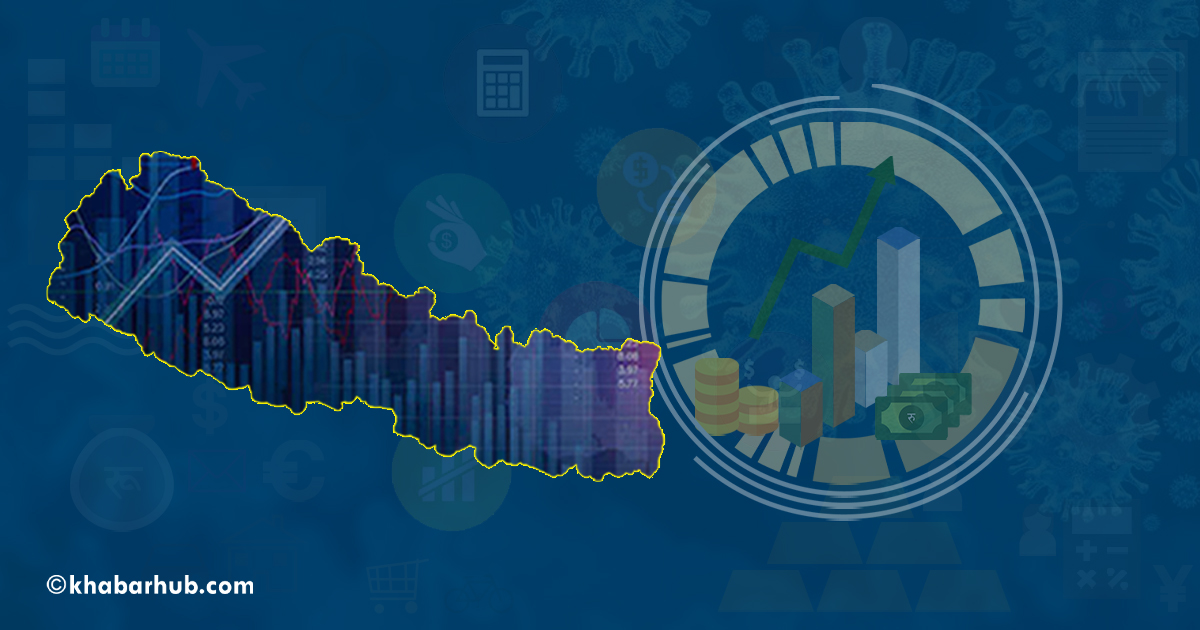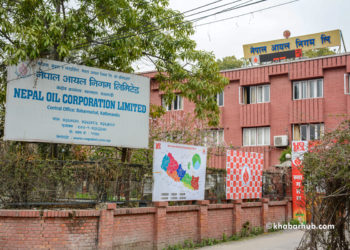Coronavirus pandemic has triggered huge changes in the socio-economic and environmental aspects of human life.
It has brought unprecedented changes in the livelihood of people, their socioeconomic behavior, and, particularly, their decision-making.
This sort of dynamism has indeed necessitated the researchers — all social science researchers — to think, and work in a much rigorous, strategic, collaborative and coordinated way.
It is the need of the hour to start out-of-the-box thinking by brainstorming on several aspects of the recent – and post-pandemic situation– and start researching the multidisciplinary approach.
Declared as a pandemic in mid-March by World Health Organization, coronavirus pandemic has generated new areas of studies not only to the public health sector — public health experts and epidemiologists — but also to other social scientists such as economists, sociologists, psychologists and, more importantly, to the behavioral economists.
Researchers working in the area on social issues, particularly, sociologists and psychologists, for them there are plenty of areas where they can think, and requires further studies.
Being a student of economics, I would rather start with some micro-economic impacts. How this (coronavirus pandemic) has altered peoples’ consumption behavior?
For example, some international manufacturers of personal care products such as Unilever has recently reported a decline in use/purchase of their personal hygiene and sanitation products — such as skin care, deodorant, saving creams — and, some studies, in the other hand, has shown increment in the demand for ready-made food items.
Similarly, An out of box thinking—who goes out for shopping from households? Does the decision of shopper alter the households’ consumption patterns?
Researchers interested in consumer behavior and the pattern of consumption can further explore the dimensions and causality of such relation further.
Researchers working in the area on social issues, particularly, sociologists and psychologists, for them there are plenty of areas where they can think, and requires further studies.
For instance, we have been watching and listening that there is a correlation between the lockdown/stay-at-home order and the number of domestic violence cases.
Shifting towards a multidisciplinary research approach to have better outcomes through evidence-based policy has become essential.
Let us make out-of-the-box thinking, what about the overall welfare of households due to the increased participation of other households member and supporting at home activities –especially Male — in household chores such as cooking, cleaning, gardening and maintaining.
Does this help improve the overall welfare of the households’? For this, it requires the involvement of the researchers’ from both sociology and economics. Not much as easier as we think, researchers could make the use of some economic modeling and econometrics tools to value households’ welfare status, however.
Shifting towards a multidisciplinary research approach to have better outcomes through evidence-based policy has become essential.
Let us think in this way. The extended lockdown duration have impacts on access to finance and banking services; I could not present the exact figure right now.
Nevertheless, I can make an intellectual guess — and that will not be an unfair too. The e-banking habits have been increased, and many people are turned into smart-banking and e-banking service users — which would not have been possible for them if it was a normal economic situation.
Besides, this is quite interesting, that due to the lockdown and stay-at-home order, people in developing countries like Nepal are also switched towards e-banking habits. Researchers further interested in investigating such behavioral shift and; continuity of such habits may find it a new cup of tea — though, may not be like ‘my-cup-of-tea’.
This also necessities researcher — financial sector researcher, particularly bankers along with the financial and monetary economists sit together and, further brainstorm to generate ideas to make the e-banking habits more accessible to bring improvement in peoples’ access to banking and financial services.
I have been wondering, particularly in two main issues: Does the safety precautions such as frequent hand washing and using of masks and other health safety measures taken by all types of people, especially by people with a lower level of awareness and income, will be in practice even in post-pandemic period?
Will some of the common measures will be in practice as “habit-formed safety measures? To what extent they will be adapted by such low educated, poorer, and marginalized sections of the society later on (post-pandemic period)?
This pandemic has also a two-dimensional connection with social networks. Firstly, breaking the chain of infection and the precautionary measures such as social distancing and stay-at-home are something determined by social network structures.
These are not the concern of epidemiologists or public health scholars, but also to the health Economists and, now the behavioral economists too.
These concerns are behavioral concerns, and behavioral economists can better understand and elucidate them. No doubt, such issues will seek joint and collaborative studies for much rigorous, scientific, and, indeed, evidence-based policy outcomes.
Recently, but before the outbreak of coronavirus pandemic, I have been studying about the use and application of social /informal networks in economics. How social network/informal group does influence our social and economic decision-making?
Some interesting but many rigorous literature — on social networks and its impact on economic decision-making– are evident.
For example, 2019 Nobel laureates in Economics Abhijit V. Banerjee and Esther Duflo along with their team have studied in different periods– in 2013 and 2018– on the issues related to social networks and microfinance and formal credit markets.
This pandemic has also a two-dimensional connection with social networks. Firstly, breaking the chain of infection and the precautionary measures such as social distancing and stay-at-home are something determined by social network structures.
Secondly, how social networks influence people’s behavior and socioeconomic decisions making during and post-pandemic period?
Alternatively, the people we often meet, talk, and get suggestions and other supports are the key influencers of our everyday life decisions.
Those who wish to dive into such issues and its various dimensions; it is essential that like-minded experts and researchers—public health experts, epidemiologists, sociologists, and economists interested in understanding and apply social network theory– to come and work together in much collaborative way.
In the last couple of weeks, in Nepal and in India, we have noticed many people getting off to their hometown, especially internal migrant workers.
We made some debate and, played some blame games too, raising the role and concern of politicians, government and respective state bodies.
However, I believe, it requires out-of-the-box thinking. Why so? Because It is now time to think seriously and from policy aspect: why a person(s) working in eastern hilly part — Solukhumbu districts — of Nepal decides to get back to the home located at another end of the country, in Bardiya and Kailali Districts by making hundreds of kilometers walk, which even most of the young age people, like me, even cannot imagine.
What propels them to think like that? Why that group of people( those migrant workers from some specific poor and marginalized communities) did not have faith, or, had not felt safe to stay at where they are, instead chose to break the lockdown order and, end up with the weeks-long painful journey.
Concluding this, I am raising, particularly key concern over, firstly, does peoples’ access, as poor people have poor access, to information and other services compels them to make economic and social decisions differently?
Were they rational? Economists argue that poor people are also rational and make economic decision rationally.
Besides, globally, stakeholders also have opined that the coronavirus pandemic is a major political economy agenda.
The Covid-19 and its implications have made it easier to evaluate and testify the success and failure of the leaders’ and mainstreaming government.
This has further raised interesting areas of studies such as access, trust, faith, dependability, equity, social inclusion, and transparency related to the political, economic and institutional mechanism.
Undoubtedly, studies over these indicators cannot be performed in isolation rather, seeks for a multidisciplinary approach.
Here is another interesting issue: What type of people are breaking the lockdown measures? Does their socioeconomic and other status has any linkages with such behavior?
This pandemic has brought an excellent opportunity to go for further collaborative and multidisciplinary research approach for rigorous and much scientific evidence-based policy design and outcomes.
Let me briefly talk about how pandemic has triggered misinformation and the situation of “infodemics”, and became a major issue in developing countries.
There are infinite examples of “infodemics”. Here is one striking example, some two weeks ago; there was a rumor in the Far-Western Province of Nepal.
People putting black coal (fire coal) Tika on their forehead to stay safe, and get rid of Coronavirus—one typical example of superstitious belief in this age of Artificial Intelligence.
Being a student of research and economics, some questions arose in my mind spontaneously, regarding the level of awareness and information among the people in those communities. This has obvious linkages with the socioeconomic and behavioral status of the people in the region.
These issues raised — as out-of-the-box thinking– about the socioeconomic dimension of coronavirus pandemic directs, and invokes the need for multidisciplinary and interdisciplinary studies/ research in developing countries like us.
There are –and will be–infinite socioeconomic implications of coronavirus pandemic in countries like south Asian. Having similar socioeconomic and institutional status, researchers’ in South Asian countries need to have further cooperation and collaboration in multidisciplinary/interdisciplinary research at states, national and intra-regional level.
In nutshell, this pandemic has brought an excellent opportunity to go for further collaborative and multidisciplinary research approach for rigorous and much scientific evidence-based policy design and outcomes.
(The writer is lecturer of Economics and Research Methodology at Department of Economics, Golden Gate International College)









Comment